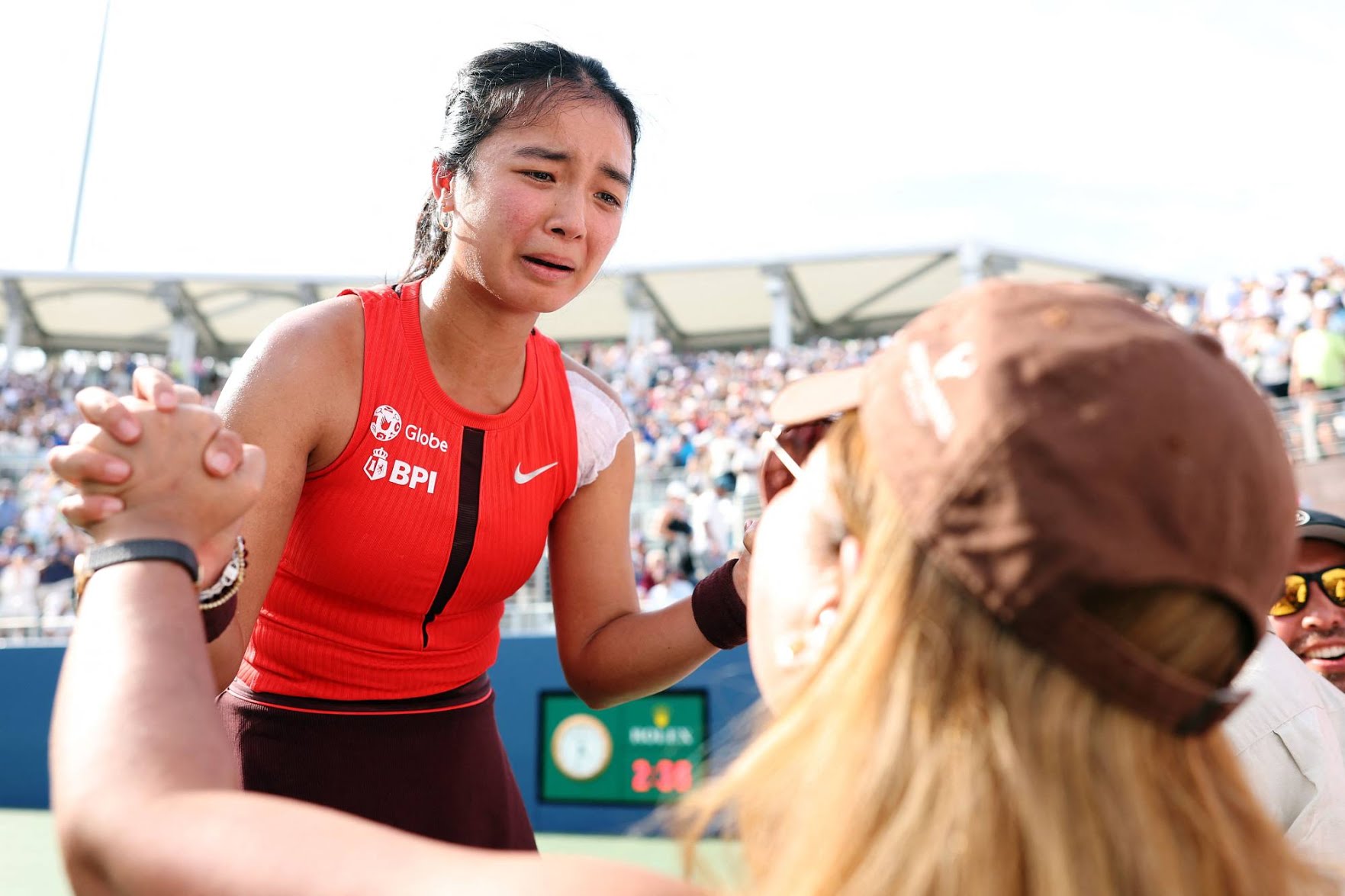On a memorable Sunday night in New York, Alexandra Eala etched her name into the history books. The 20-year-old tennis prodigy became the first Filipino player in the Open era to win a main-draw match at a Grand Slam, pulling off a stunning upset against world No. 14 Clara Tauson in the first round of the 2025 US Open.

Eala’s victory was not just about advancing in a tournament it was a triumph for the Philippines, for Southeast Asia, and for a global community that has followed her journey since she was a teenager making waves on the ITF circuit.
A Comeback for the Ages
The match itself was nothing short of dramatic. Eala started brightly, taking the first set 6-3 against the higher-ranked Dane. But Tauson found her rhythm in the second, overpowering the Filipina with a 6-2 set win to force a decider.
When Eala trailed 1-5 in the third set, the match seemed all but lost. Yet in front of a vocal crowd many waving Philippine flags and chanting her name she mounted a remarkable comeback. Fighting off nerves and fatigue, she clawed back to level the score and push the set into a tiebreaker.
The final moments were pure heart-stopping theater. Eala saved multiple match points and finally sealed the win 7-6 (13-11). Overcome with emotion, she collapsed to the court as cheers erupted across Flushing Meadows.
Carrying the Filipino Spirit
What made the victory even more special was the presence of the Filipino diaspora in New York. With more than 260,000 Filipinos living in the metropolitan area, Eala felt at home in a foreign land.
“To be Filipino is something I take so much pride in,” she said after the match. “I don’t have a home tournament, so to be able to have this community here at the US Open, I’m so grateful they made me feel like I’m home.”
For Eala, the support was more than just noise from the stands it was a reminder of who she represents and why her journey carries meaning beyond wins and losses.
Lessons from the Past
The road to this breakthrough has not been easy. Eala admitted that her ability to recover and push through in the tiebreak came from lessons learned in past setbacks.
“It makes what I do bigger than myself and gives a special meaning to my work,” she said. “It’s hard to think that I’m the first to accomplish something like this because it’s also my first time experiencing this journey on tour.”
Indeed, 2025 has been a career-defining year for her. Back in March, she stunned the tennis world at the Miami Open by defeating Australian Open champion Madison Keys and former world No. 1 Iga Swiatek in a fairytale run to the semi-finals. That momentum carried into New York, where she now stands as one of the emerging faces of women’s tennis.
A Regional Breakthrough
Eala’s triumph was mirrored by another milestone on the same day. Indonesia’s Janice Tjen scored an upset of her own, sending No. 24 seed Veronika Kudermetova crashing out of the tournament. For Eala, the success of her fellow Southeast Asian player only added to the joy.
“I’m so happy to see the progress of tennis in Southeast Asia in general,” she shared. “I’ve known [Janice] for a long time, so I’m happy for her. It’s nice to see someone that you grew up with on the biggest stages in the world.”
Together, their wins marked a breakthrough moment for a region often overlooked in tennis conversations.
Focus on the Road Ahead
Despite the celebrations, Eala remains grounded. With her second-round match looming, she emphasized recovery and mindset.
“The key for my upcoming match is just to come in with the same mentality, same fight,” she said. “Right now I’m just focused on recovering.”
Her boyfriend, Hong Kong’s No. 1 Coleman Wong Chak-lam, is also part of the historic moment. Wong became the first player from his city since 1954 to reach a Grand Slam main draw and was set to face America’s Aleksandar Kovacevic later that same day.
A Star on the Rise
For the Philippines, Eala’s achievement is more than a sports headline it’s a national moment. She has given a proud nation, long waiting for its breakthrough in tennis, a reason to believe. For Filipinos around the world, her victory resonates as a reminder of resilience, identity, and unity.
Eala’s journey is still unfolding, but one thing is clear: she is not just playing for herself. She is playing for a country, a community, and a new generation of athletes from Southeast Asia ready to take their place on the world stage.

